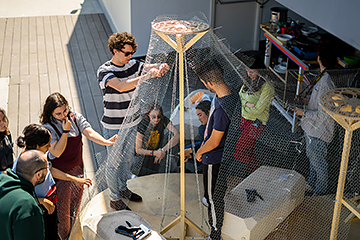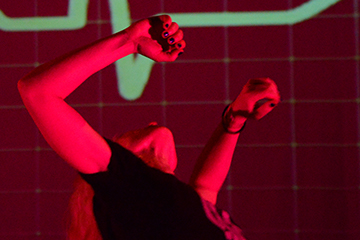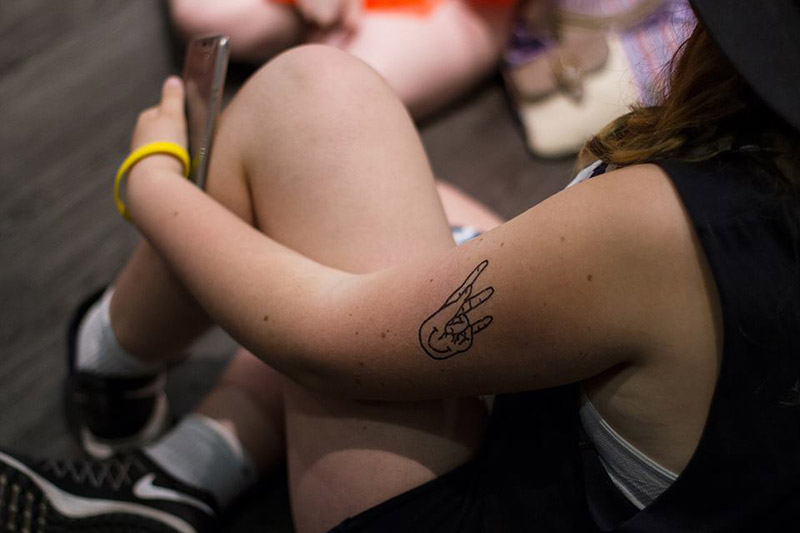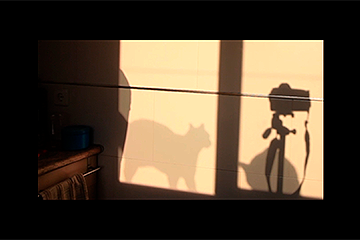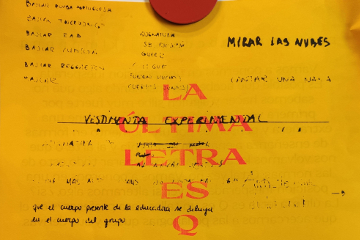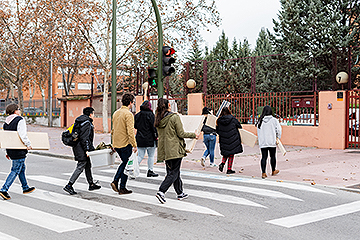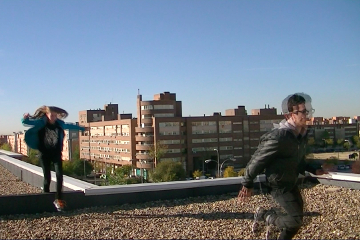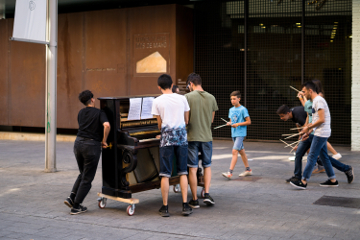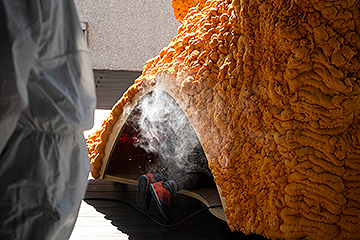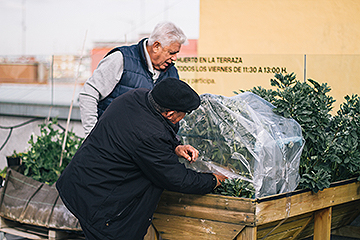Admission free, during workshop hours.
The CA2M’s roof garden has been up and running for seven years, a time during which we have lived through an intense process in which many people have taken part, making it a meeting point predicated on working together and sharing know-how.
Since its beginnings, the roof garden was conceived as a space that would go beyond the limits of an organic agriculture school and would form a community. This goal has been fulfilled. Today, the roof garden is the focal point for a group of people who have accumulated many years of learning, enjoyment and coexistence based on the practice of agroecology and permaculture, the recovery of traditional know-how and learning from peasant farmers and a reflection on the challenges of sustainability.
Today, the community formed around the roof garden at CA2M is taking on the challenge of opening up to new people without forgetting the research and experimentation that motivates existing members of the community. For this reason, this year we will be giving an opportunity to all those who are people interested in learning more about agroecology and permaculture, at a beginner’s level, without ignoring the needs and rhythms of learning of the members who have been active since the beginning and demand more specific workshops with advanced contents. For this purpose, during the first part of the year, the workshops will be divided into two categories: beginners (*) and advanced (**). We will also work in two different schedules, to give more possibilities to people who, for personal or working reasons, cannot attend in conventional hours.
In collaboration with Instituto de Transición Rompe el Círculo.
More information on actividades.ca2m@madrid.org, on (+34) 912760225, the reception desk at CA2M or at the Rompe el Círculo association.
PROGRAMME OF ACTIVITIES FOR THE ROOF TERRACE GARDEN
PROGRAMME SEPTEMBER - DECEMBER 2020
ROOF TERRACE GARDEN WORKSHOP (CA2M)
11 September 11:00 - 13:00 | Recovering the kitchen garden **
After the parenthesis caused by the pandemic, we will return to the roof garden and begin tasks of recovery and maintenance.
18 September 17:00 - 19:00 | Starting an ecological kitchen garden *
We will show you the basic principles of organic agriculture and we will begin to prepare seedbeds for the autumn. In addition, we will carry out the usual gardening tasks proper to the month of September.
25 September 11:00 - 13:00 | A kitchen garden in all dimensions **
We will create and place elements in the garden that will allow us to use the space of the roof terrace both horizontally as well as vertically, giving it a more uncultivated look and at once making it more welcoming.
2 October 17:00 - 19:00 | The square-metre kitchen garden *
We will learn new cultivation methods that will help us to maximize production in small spaces. A very interesting workshop for city dwellers who generally do not have large spaces where they can plant.
AGRO-ECOLOGICAL WORKSHOPS (GABRIEL CELAYA SCHOOL)
9 October 11:00 - 13:00 | Gardening in terraces **
We will work with different raised terrace systems and create spaces for planting during autumn in the school garden.
16 October 17:00 - 19:00 | How to make good compost *
We will learn how to make a compost bin and lay the foundations for the production of compost as a key element in our agroecological system.
23 October 17:00 - 19:00 | Creating an aromatic herb spiral I (* and **)
A spiral of aromatic herbs, as well as being a unique and aesthetically pleasing system of cultivation, helps us to understand the specific needs of each plant and how to create the necessary microclimates to grow herbs with very different needs in the one place.
30 October 17:00 - 19:00 | Creating an aromatic herb spiral II (* and **)
We will continue learning how to grow in spiral and will plant the chosen species.
SUSTAINABLE FOOD WORKSHOPS (LOCATION TO BE DECIDED)
6 November 17:00 - 19:00 | The pandemic: the boomerang effect of a diet that destroys the ecosystem (* and **)
We will get this new module underway with a current topic. This year is different. A virus has severely challenged our health, economic and social system. We have discovered that our purported dominion over nature has serious and irreversible consequences. In this session, we will explore in depth how the pandemic is connected with the environmental crisis and the role our unsustainable diet plays in all this.
13 November 17:00 - 19:00 | Eating better to look after the planet (* and **)
In a double, theoretical and practical, session we will first take a panoramic overview of global food production, differentiating industrial production from agroecological production. Afterwards, we will share recipes to help us enjoy new healthier and more sustainable eating habits.
20 November 17:00 - 19:00 | A chestnut celebration (* and **)
Popular festivals in the rural world have always been based on wisdom and respect for the rhythms of nature. In this session, and by means of a castañada, an autumn festival based on chestnuts, we will call to mind popular celebrations based on reciprocity, joy and sustainability. In addition, we will share recipes using chestnuts and other nuts.
27 November 17:00 - 19:00 | Do we know what we eat? (* and **)
The food industry has become so removed from natural processes of food production that today we do not know what the food we eat actually contains. Some of the goals of this workshop will be to look at how to analyse labels, which products are less healthy and to debunk certain ideas on supposedly healthy foods.
11 December 17:00 - 19:00 | A zero-residue Christmas (* and **)
Christmas is a time of the year when wasteful consumption gets out of control. In this session we will think together about alternatives and make sustainable gifts that will allow us to reduce the environmental impact of this holiday season.
18 December 18:30 | Healthy Christmas recipes (* and **)
We propose a workshop with recipes so that our holiday celebrations will be healthy, sustainable and economic and at once very enjoyable. Because it is possible to eat well and surprise family and friends without helping to make Christmas a small environmental disaster.
